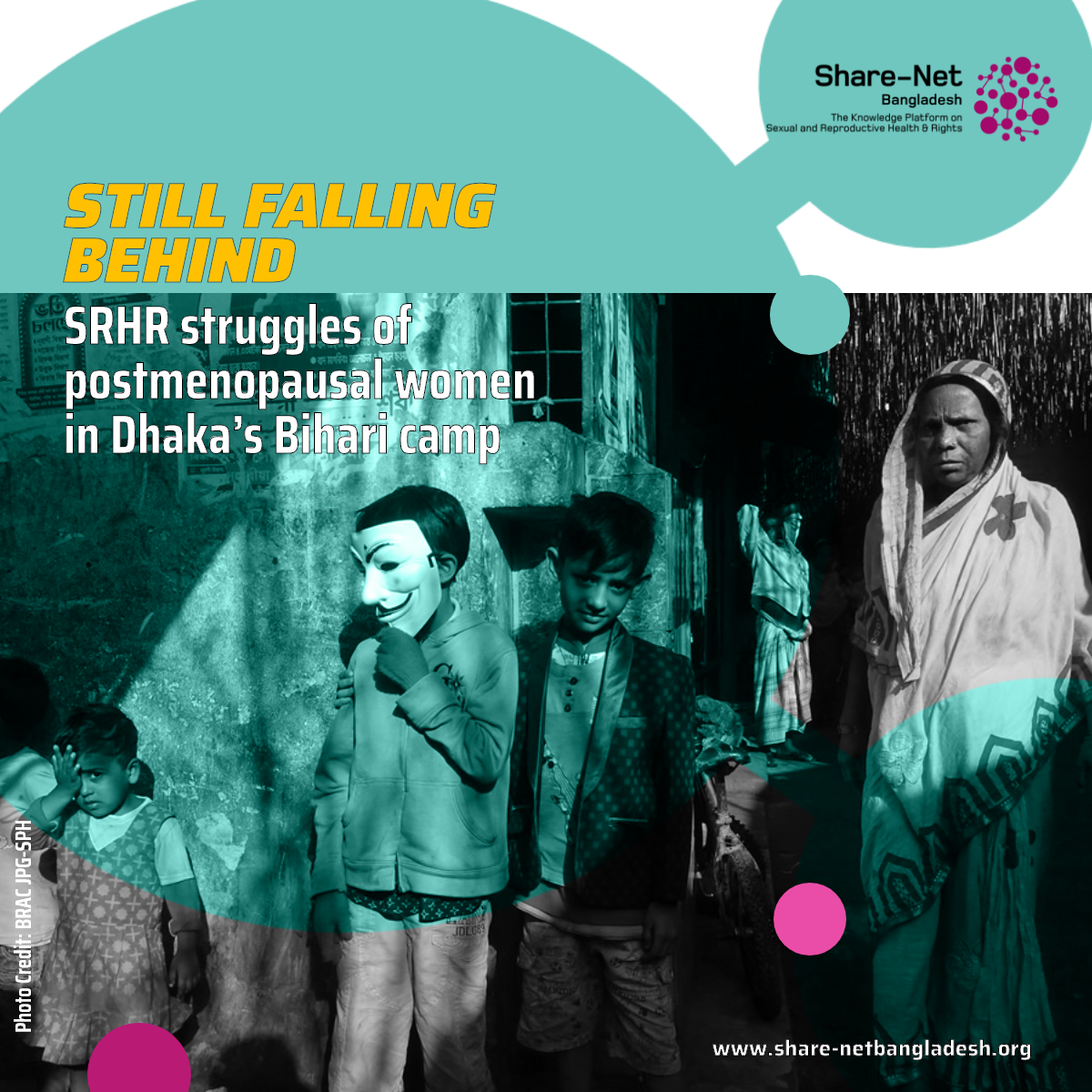Still Falling Behind: SRHR struggles of postmenopausal women in Dhaka’s Bihari camp
In the narrow alleys of Mohammadpur Geneva Camp (MGC), where thousands of Bihari families live in dire conditions, women’s sexual and reproductive health and rights (SRHR) often fade into the background. A recent study, surveying 1,200 postmenopausal women (PMS) aged 45–75 in this refugee camp, highlights a silent crisis — one that revolves around menopause, stigma, poverty, and isolation.
Conducted between November and March 2019, the study found that hot flushes, night sweats, palpitations, sleep disorders, and joint pain were the most common symptoms, with over 90% reporting depressive mood and 96% suffering joint discomfort. One woman shared, “We don’t talk about it. It’s not just the heat in the body. It’s the heat of being unheard.”
The findings are stark. The average age of menopause was 46.3 years — lower than national averages — possibly linked to early contraceptive use and undernutrition. According to the Menopause Rating Scale (MRS), psychological symptoms like depression, anxiety, and exhaustion worsen with poor education and prolonged time since menopause. Marital status and income were strong predictors of better or worse experiences.
Regression analysis revealed that systolic blood pressure (SBP) and income significantly influenced somatic symptoms, while education, occupation, and marital status shaped psychological and urogenital well-being. “Homemakers suffered more than working women. Lack of mobility, heavy chores, and loneliness compound the effects of menopause,” the study noted.
Living conditions in MGC — marked by overcrowding, poor sanitation, and food insecurity — further affect QoL. Despite awareness of their symptoms, most women lacked access to nutritional guidance, medical support, or mental health counselling.
The study also stressed the urgent need for SRHR-focused community interventions in camps like MGC. Integrating menopause care into primary healthcare and training community health workers can help. Furthermore, longitudinal studies are recommended to assess causal links between menopause and declining QoL in such marginalized groups.
According to UNFPA (2024), over 52% of Bangladeshi women lack access to adequate reproductive health services. In refugee settings, that number is likely higher. As Bangladesh continues its journey toward universal SRHR coverage, the women of Geneva Camp must not be left behind.
Download full report – Quality Of Life (QOL) Among Postmenopausal (PMS) Women in Mohammadpur Geneva CAMP (MGC)
Source:
Sultana, N. and Saleh, F., 2025. Quality Of Life (QOL) Among Postmenopausal (PMS) Women in Mohammadpur Geneva CAMP (MGC), Dhaka, Bangladesh: A Cross-sectional Study. Jundishapur Journal of Health Sciences, 17(17)

